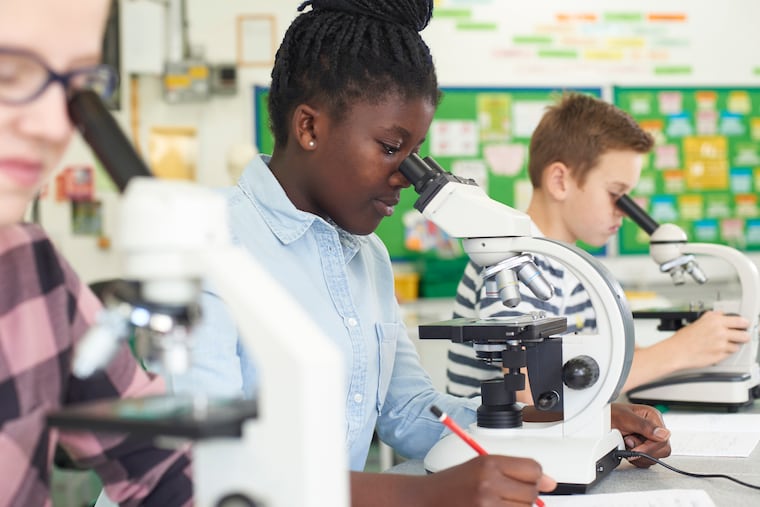Does Harrisburg value the “S” in Pennsylvania STEM education? | Opinion
Most concerning for our lack of S in STEM is that our current PA Science and Technology standards were conceived during the age of VHS tapes (1990s) and long before the first smartphone rolled out.

Does Harrisburg value the "S" in Pennsylvania STEM education?
Recently, Harrisburg has been making some welcome progress on the STEM (Science, Technology, Engineering and Math) and education fronts for the state. But we've only scratched the surface of what we need to do to provide competitive K-12 STEM education in Pennsylvania.
For years, Harrisburg has forgotten about the science in STEM.
To start, Harrisburg did not have any full-time practicing science teachers on the Every Student Succeeds Act (ESSA) stakeholder group. This group helped shape STEM policy for Pennsylvania in the ESSA era. This same situation happened again in the Computer Science for All stakeholder group. This led to a policy where computer classes could supplant, not supplement, science learning. Prior to this policy, students were only required to take three science credits, now they could take even fewer in an increasingly STEM-driven economy.
>> READ MORE: Wanted: More girls in STEM careers | Opinion
If you look at recent NAEP scores (National Assessment of Education Progress) for Pennsylvania science, you would be hard-pressed to find them. NAEP is the "Nation's Report Card" for educational progress and lets Pennsylvania taxpayers know how we compare to other states academically. Pennsylvania is one of a very few states that have chosen not to participate in NAEP science.
Most concerning for our lack of science in STEM is that Pennsylvania's Science and Technology standards were conceived during the age of VHS tapes, long before the first smartphone rolled out. These ancient standards teach science disciplines like unconnected academic silos, filled with disconnected facts, and little regard to STEM process, math, engineering or technology. Alarmingly, these outdated standards are used to source our science PSSAs (state science exams). These exams play a part in how districts, teachers, and students are judged. Other academic subjects have regularly adopted standards revisions over the years, but not science.
Our Keystone Exams have been in the news recently. The science "STEM" Keystone exam is based solely on biology, even though biology is not one of the top three STEM job areas of need in Pennsylvania. Harrisburg deems biology as the most important STEM field based on this Keystone. Policy prioritizes district (taxpayer) resources. Outdated PSSA material and the emphasis on biology forces us all to sink more district resources into old-school thinking in K-12 education rather than STEM thinking to fuel our local workforce and economy.
>> READ MORE: Public education shouldn't have to rely on private money | Opinion
Ask your child or any students in elementary school how much time they get each week to explore science. For the last 20 years, math and language arts teaching time have been kings in elementary schools in Pennsylvania. The creative curiosity that science study promotes has long been stifled in our state.
How can Pennsylvania put the science back in STEM?
Value the voices of practicing science educators by giving us a seat at the policy table.
Adopt and fully resource the implementation of modern K-12 STEM standards tied to updated, authentic STEM assessments. A step toward this would be the adoption of the Next Generation Science Standards (NGSS). Many of our neighboring states and states throughout the country have adopted or adapted these modern standards. Students in these states are learning that subject integration is natural and is part of any STEM job. Engineering, math, communication, process, grit, and growth skills are all intentionally enhanced by NGSS.
Devote more instructional time for science at all K-12 levels.
Harrisburg, if the "S" is important in STEM education in Pennsylvania, then let's not delay and let's show our taxpayers that you can't have STEM without science.
Jeff Remington is a STEM educator and national STEM teacher ambassador at Palmyra Middle School in Lebanon County.